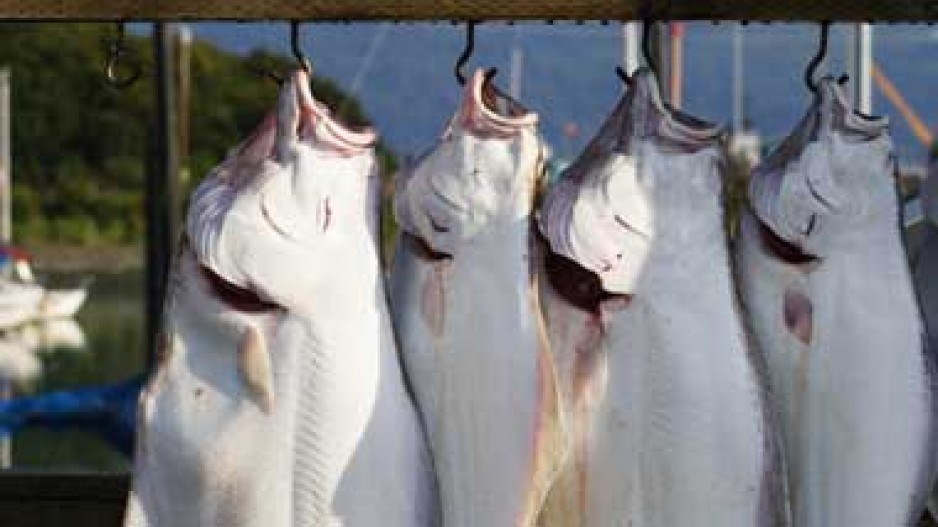Ottawa will increase sport fishers' halibut quota by 3% – a decision neither the sport nor commercial fishing sectors are happy with.
Fisheries and Oceans Minister Keith Ashfield announced Friday that he will increase the sport fishery's allocation of Pacific halibut to 15% from the current 12%. The commercial fishery will retain the lion's share of halibut quota – 85%.
"Our government is making good on a commitment to provide greater long-term certainty in the Pacific halibut fishery for First Nations, commercial and recreational harvesters, and, most importantly, encouraging jobs and economic growth in British Columbia," Ashfield said in a news release.
Ashfield has instructed DFO to make an "immediate correction" to the current ratio.
But the decision has not been well received in either the sport or commercial fishing sectors.
"Playing politics with fishery allocations undermines resource sustainability and responsible management," said Christina Burridge, executive director of the BC Seafood Alliance, which represents the commercial seafood sector.
"Competing interest groups lobbying the politicians for more access to the resource is bad for the fish and the people of Canada."
George Cuthbert, president of West Coast Resorts in Haida Gwaii, isn't happy with the decision either.
Prior to the last election, during a visit to Vancouver Island, Prime Minister Stephen Harper promised recreational fishermen that he would find a fair solution to the allocation of halibut quota, Cuthbert told Business in Vancouver.
"He did not live up to that promise," Cuthbert said. "It further clarifies the government's intention to further privatize a Canadian resource."
Ever since the halibut fishery was moved to a quota system, sport fishermen have complained about getting less and less access to a public resource. (See: "B.C. flatfish fight heats up" – issue 1112; February 15-21, 2011.)
While a quota system has been found to be highly effective from a stock management perspective, it means a public resource is now largely privately owned, and the seasons for sport fishing are becoming shorter, resulting in greater uncertainty for businesses that rely on the fishery.
"Are we going to see a shutdown now in July and August?" Cuthbert asked. "I don't know. How can you sell a trip when you don't know if [the fishery] is going to be open?"




